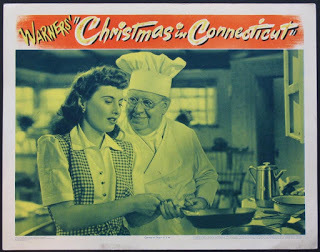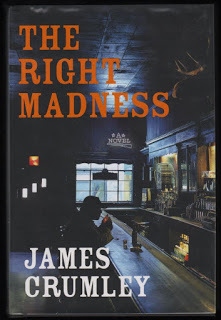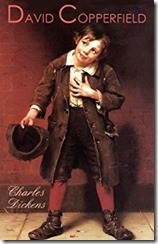Terry Shames's Blog: 7 Criminal Minds, page 225
January 2, 2017
Happy New Year
It’s a new year and an especially relevant time for me to introduce myself because my sixth novel comes out TOMORROW, January 3.
I grew up in Texas and the place has a hold on me that I guess most people feel for their original home. When I go back to visit, I have a strange mix of annoyance and happiness. I’m annoyed at the ways in which the worst of the state’s excesses have taken over, and happy to be back where the smell of the air and familiar sights, smells, and sounds take me back to a...
I grew up in Texas and the place has a hold on me that I guess most people feel for their original home. When I go back to visit, I have a strange mix of annoyance and happiness. I’m annoyed at the ways in which the worst of the state’s excesses have taken over, and happy to be back where the smell of the air and familiar sights, smells, and sounds take me back to a...
Published on January 02, 2017 07:44
December 23, 2016
Happy Holidays to All and to All a Good Night!
Made it through another writing year! Are you taking a break or is this prime, quiet, writing time for you?
by Paul D. Marks
 A break? Are you kidding? Do writers ever take—or get—a break? There’s blogs to write and stories to flog and novels to finish (I did just finish one). Even when we’re not at a keyboard writing-writing we’re thinking and plotting and figuring out ways to kill you, uh, I mean kill someone in our stories.
A break? Are you kidding? Do writers ever take—or get—a break? There’s blogs to write and stories to flog and novels to finish (I did just finish one). Even when we’re not at a keyboard writing-writing we’re thinking and plotting and figuring out ways to kill you, uh, I mean kill someone in our stories.
Actually, I’m working on several short stories, writing blogs and work...
by Paul D. Marks
 A break? Are you kidding? Do writers ever take—or get—a break? There’s blogs to write and stories to flog and novels to finish (I did just finish one). Even when we’re not at a keyboard writing-writing we’re thinking and plotting and figuring out ways to kill you, uh, I mean kill someone in our stories.
A break? Are you kidding? Do writers ever take—or get—a break? There’s blogs to write and stories to flog and novels to finish (I did just finish one). Even when we’re not at a keyboard writing-writing we’re thinking and plotting and figuring out ways to kill you, uh, I mean kill someone in our stories.Actually, I’m working on several short stories, writing blogs and work...
Published on December 23, 2016 00:01
December 22, 2016
Hitting the Couch
"Is this prime, quiet writing time for you or are you taking a break?"
By the time you read this I will be done. I'll have finished the first draft of a book, printed it out (dancing around to . . . haven't decided yet, but probably 'All I want for Christmas is You'), and slammed my office door. With me on the outside.
I'm going to move my pile of Christmas reading - carefully curated and then hoarded all year - to the coffee-table. I'll light a fire, put the kettle on for the first of ma...
By the time you read this I will be done. I'll have finished the first draft of a book, printed it out (dancing around to . . . haven't decided yet, but probably 'All I want for Christmas is You'), and slammed my office door. With me on the outside.
I'm going to move my pile of Christmas reading - carefully curated and then hoarded all year - to the coffee-table. I'll light a fire, put the kettle on for the first of ma...
Published on December 22, 2016 00:49
December 21, 2016
December 20, 2016
Doo doo doo
Q: Are you taking a break or is this prime, quiet writing time for you?
A: Neither.
 My fault. I have too much to do, and instead of doingit in those valuable windows of opportunity, I endeavour to give myself something more fun to do, like take singing lessons.
My fault. I have too much to do, and instead of doingit in those valuable windows of opportunity, I endeavour to give myself something more fun to do, like take singing lessons.
As a result, this Christmas I'll be working pretty well all the way through, and when I get the worst of it done, when everyone else is reveling in snow and scotch, how can I possibly write?
My road seems paved with good...
A: Neither.
 My fault. I have too much to do, and instead of doingit in those valuable windows of opportunity, I endeavour to give myself something more fun to do, like take singing lessons.
My fault. I have too much to do, and instead of doingit in those valuable windows of opportunity, I endeavour to give myself something more fun to do, like take singing lessons.As a result, this Christmas I'll be working pretty well all the way through, and when I get the worst of it done, when everyone else is reveling in snow and scotch, how can I possibly write?
My road seems paved with good...
Published on December 20, 2016 02:57
December 19, 2016
Joyeux Noël!
- from Susan
Q: Are you taking a break or is this prime, quiet writing time for you?
A: Considering I just returned from a trip to the town in Burgundy where my second French village mystery takes place, with photos and notes about how the people of the area celebrate Christmas, it’s essential writing time. DRESSED FOR DEATH is due to my editor very soon. (The first, LOVE & DEATH IN BURGUNDY, doesn't come out until May 2 and is set in the heat of summer.)
The French deal with Christmas diffe...
Published on December 19, 2016 01:00
December 16, 2016
Careful What You Wish For
It's a hard question. I'm a writer, and same as any one of us, I'm lousy with books. From the research materials for stuff I'm working on, to the reciprocal purchases I have stacked, and finally, the manuscripts folks ask me to beta read, I'm already digging myself out of a quantum amount of words. When the question of the five books I'd give for the holidays came up, I had to curb my desire to list fifty. I've given plenty of books, sure, but I don't think I've ever received a book as a Chri...
Published on December 16, 2016 09:11
December 15, 2016
It’s the Thought That Counts
by Alan
We're getting to the panic-buying days. And nothing makes a better present than a book, right? What book would you most like as a gift? Tell us, and you can share this post with "someone" who needs to know!
When I was a kid, I wasn’t wild about getting books as gifts. Now that I’m an adult older kid, I love it! For those who might want to get me a little somethin-somethin, here are some thoughts:
I’ve never read this (please don’t hate me):
Or this:
Or this, either:
Of cours...
Published on December 15, 2016 00:05
December 14, 2016
The Right Madness at this time of year …
by Dietrich Kalteis
One of my favorite authors in recent years is James Crumley. A couple of weeks back I recommended some books here on 7 Criminal Minds, and one of them was One to Count Cadence. It was Crumley’s first novel and a great start to a brilliant writing career.

I’ve been working my way through his C.W. Sughrue books, and The Right Madness is the last one in the series. Published in 2005, this was also Crumley’s last novel and the final outing for his character C.W. Sughrue....
One of my favorite authors in recent years is James Crumley. A couple of weeks back I recommended some books here on 7 Criminal Minds, and one of them was One to Count Cadence. It was Crumley’s first novel and a great start to a brilliant writing career.

I’ve been working my way through his C.W. Sughrue books, and The Right Madness is the last one in the series. Published in 2005, this was also Crumley’s last novel and the final outing for his character C.W. Sughrue....
Published on December 14, 2016 01:00
December 13, 2016
A White Christmas
By R.J. Harlick
[image error] I awoke this morning to a land of pristine white. A deep carpet of soft powder has transformed the woods surrounding our log cabin into a winter wonderland of undulating perfection that beckoned us to come out to play. And play we did… or at least our dogs did. My husband and I enjoyed a delightful walk, kicking clouds of fluffy white into the air. Absolutely perfect snow. And it’s still snowing. Hallelujah, we’re going to have a white Christmas.
So when it came time to w...
Published on December 13, 2016 00:30
7 Criminal Minds
A collection of 10 writers who post every other week. A new topic is offered every week.
- Terry Shames's profile
- 274 followers






